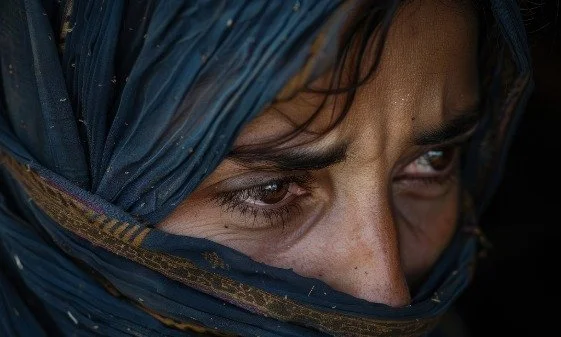Indian Citizens Expelled, Foreign Migrants Exempted in Unequal State Action
Delhi Police Expels Indian Muslim Family While MHA Relaxed Rules for Foreign Hindu Migrants
September 4, 2025
Two contrasting news reports reveal institutional inconsistency in how citizenship rights are identified and protected. A 25-year-old Muslim woman, her husband and child were expelled to Bangladesh from Delhi despite holding multiple documents proving Indian citizenship, while the Ministry of Home Affairs (MHA) exempted undocumented non-Muslim migrants from Pakistan, Afghanistan and Bangladesh from prosecution under immigration laws if they entered India before Dec. 31, 2024.
In Delhi’s Rohini area, police detained Sunali Khatun, her husband Danish and their eight-year-old son Sabir on June 20, alleging they were undocumented Bangladeshi immigrants. The family, originally from Paikar village in West Bengal’s Birbhum district, had migrated to Delhi for work, Scroll.in reported. Despite producing Aadhaar and ration cards during the raid, the family was declared foreign within six days by the Foreigners’ Regional Registration Office (FRO). They were deported allegedly without police verification from their home district, a step mandated by a May 2 directive from the MHA.
Scroll’s investigation found extensive evidence of the family’s Indian roots, including verified names in voter lists from 2002, a land deed dating back several generations and community testimonies, including that of a midwife who delivered Sunali. Their village neighbours and local panchayat staff corroborated that the family had lived there for decades.
Sunali’s sister alleged that the police fabricated a confession of Bangladeshi origin and took bribes to release others. An officer from the concerned police station denied the bribery claim.
The family’s expulsion has been challenged in the Supreme Court by Rajya Sabha MP Samirul Islam.
Sunali’s family is one of several Bengali-speaking individuals who have reportedly been declared illegal immigrants in recent months.
Meanwhile, the Indian government has issued a gazette notification exempting non-Muslim migrants from Pakistan, Afghanistan and Bangladesh who entered India by Dec. 31, 2024, from prosecution under the Foreigners Act and the Passport (Entry into India) Act. The notification clarified that this does not alter the Citizenship Amendment Act (CAA) deadline of Dec. 31, 2014, which determines eligibility for Indian citizenship under the law. However, the exemption provides legal relief to non-Muslim undocumented migrants from these countries and communities, especially those seeking long-term visas.
According to an MHA official quoted by The Indian Express, the exemption only applies to passport and visa violations and does not confer citizenship. Even so, the notification adds a legal shield for a selected group of foreign nationals, easing their legal vulnerability despite their unauthorised presence in India.
Providing them legal protection should not be criticised, but from a political science and public administration standpoint, the two parallel developments raise questions about consistency, legality and procedural integrity in governance.
The Delhi deportation case demonstrates a breakdown in due process. Despite explicit MHA guidelines, local enforcement allegedly failed to conduct required verification with the individual’s home state before expelling her and her family. Such disregard for administrative checks compromises institutional credibility, particularly for laws that affect citizenship status and human rights.
The selective protection granted under the MHA’s new notification contrasts with the absence of protection for Indian citizens like Sunali. The legal exemption for undocumented non-Muslim migrants broadens the category of those protected by state discretion, while Indian Muslim citizens face the risk of being expelled without recourse. This signals a skewed administrative focus that favours certain religious groups and national origins over procedural rights and documented proof.
In governance terms, this divergence reflects unequal application of the law, which undermines public confidence in administrative impartiality. Citizenship is a foundational status in a democracy, and its regulation demands uniformity, clarity and procedural safeguards. The discrepancy between expelling citizens with documentation and protecting undocumented migrants on the basis of religious identity and regional origin reveals a politicised interpretation of legal frameworks.
Over time, such selective enforcement can create conditions for systemic discrimination. It enables state actors to act with discretion in a domain that should be governed by strict evidentiary and legal standards. The absence of accountability for failures in verification, coupled with unmonitored discretionary relief, dilutes the authority of citizenship law and exposes it to political interference.
If this administrative pattern continues, it risks institutionalising practices that allow for both arbitrary denial of citizenship rights and arbitrary exemptions from legal violations. The consequences are especially grave in a country with diverse migrant histories and weak birth registration infrastructure. For many Indians without birth certificates, especially in marginalised communities, this could mean being subjected to unpredictable and discriminatory scrutiny.
You have just read a News Briefing by Newsreel Asia, written to cut through the noise and present a single story for the day that matters to you. Certain briefings, based on media reports, seek to keep readers informed about events across India, others offer a perspective rooted in humanitarian concerns and some provide our own exclusive reporting. We encourage you to read the News Briefing each day. Our objective is to help you become not just an informed citizen, but an engaged and responsible one.

